After coming off Milestone’s other recent motorcycle title, Supercross 5, I have to say that swinging into MotoGP 22 felt like a wildly different experience. Even though motorcycles are fundamentally the same in terms of basic structure, just as you can’t compare a Lambo Aventador to a Toyota 4Runner, neither can you compare the dirt bikes of Supercross to the sports bikes of MotoGP.
In short, the two-wheeled techniques of this experience are not for the faint of heart or easily frustrated. In my short hands-on time with the upcoming racer, I became much closer friends with the pavement than I expected.
(Not so) easy street
“Complex” feels like too simple of a word to describe the mechanics of MotoGP 22. Maybe “grueling,” “laborious,” or “onerous?” The point is, MotoGP 22 tries its best to accommodate all skill types, but you’ll quickly find out that the term “practice makes perfect” absolutely applies to the process of making any sort of progress in this motorcycle racing sim.
MotoGP 22 possess an array of complex mechanics that require you to keep sharp focus on all sorts of different operations at once. The positioning of your rider’s weight, how far you lean into a curve, the proper throttle and brake control for deep turns, and flipping between different modes on your bike; there truly is a lot to keep in mind as ypu zoom your way through the often serpentine-heavy tracks.
Similar to pro racing in traditional four-wheeled vehicles, there’s also a lot of rules that regulate these motorcycle races. From corner-cutting to collisions and falls, all of these could result in harsh penalties that prevent you from passing a test or placing well in a race. So, again, “get gud” really is the name of the game here.
That said, I quickly became thankful for the fact that MotoGP 22 immediately presents you with a variety of tutorial races upon startup. You can run through these tutorials at any time afterwards. Much like a seasoned traveler groaning over having to listen to yet another pre-flight safety demonstration, I initially met the tutorial menu with a bit of annoyance, because racers are my main genre. It only took a matter of moments in the first tutorial to understand why they’re so important for this title, though. As you can already discern from all that I’ve explained so far, beginners are going to need some serious fine-tuning before they can get anywhere in MotoGP 22. And by “beginners,” I’m mostly referring to myself.
Trial and error(s)
Playing through the tutorials made me feel like I was playing my first racing game ever. I tried my best to follow the racing line, I floundered and flopped my way through turns, and was scared to push the accelerator too far forward for fear of crashing (despite crashing anyway). All of this made me feel as if I was judgmentally watching a non-gamer struggle to grasp the basic mechanics and thinking “Why don’t you get it?” But in this case the “you” is actually me, and the judgement is real. Enough suffering, just give me the virtual training wheels so I can win something. Interestingly, MotoGP 22 does have its own version of training wheels and to quite the degree.
Assists in racing games are nothing new and are, arguably, more commonplace now than before. Sure, elitists scoff at the very existence of such tools, but thankfully, racing devs seem to have made it an unspoken rule that such mechanisms should be a standard. MotoGP 22 makes use of them in spades, with even fundamental elements of the experience, like braking and throttle control, having computer assistance.
Other than common stuff, such as traction control, I hardly have to make use of any assists in a racing game. But I enabled almost each one in MotoGP 22. And still, I struggled to get fully accustomed to its handling model. You can really feel the weight of your rider and how that affects the turning capability of the bike.
Turns are long and heavy, making the entire experience far different than the tight and almost instant snaps expected from the dirt racing in Supercross. Again, playing these two titles back to back really felt like a night and day difference, thus signifying that they’re truly meant for different audiences.
Give it the gas
Even though Milestone’s Supercross is also a very technical, sim-like racer, it’s just inviting enough that newcomers can get a grasp of its controls and build up their skills gradually. In MotoGP 22, it feels more like a learning mountain rather than a simple curve.
This is only going off of my own experience, but it’s clear that MotoGP 22 is meant for far more serious racers. It calls upon you to really hone your skills and have a true connection with your bike. If that’s the vision of the developers, then I’d say that they’ve certainly nailed it from that aspect. However, I can see how that could be off-putting to more casual players who just dive in out of curiosity and quickly opt out when things don’t “click” right away.
This is not a mark against MotoGP 22, mind you. It’s difficult to make a title feel both richly authentic enough to impress those looking for a complex, sim-like experience while also retaining enough padding to cushion the bruises that newcomers will encounter in their early moments. In other words, if you can’t handle the ride, you may just want to take a detour before you get too far down the path. Getting into the MotoGP 22 gates truly seems to be a rite of passage.
Perhaps Milestone may tighten up the controls before MotoGP 22 launches next month, but I highly doubt there will be much of a difference. That said, in its current pre-release form, I can definitely see that there’s a solid product to be had. But, for a player like myself, I predict trying to slog through the campaign will be quite the challenge.
So, by all means, the MotoGP 22 experience is something I’d recommend dabbling in as a trial at first if at all possible before full commitment. Many titles deserve a demo, and this is one of them.

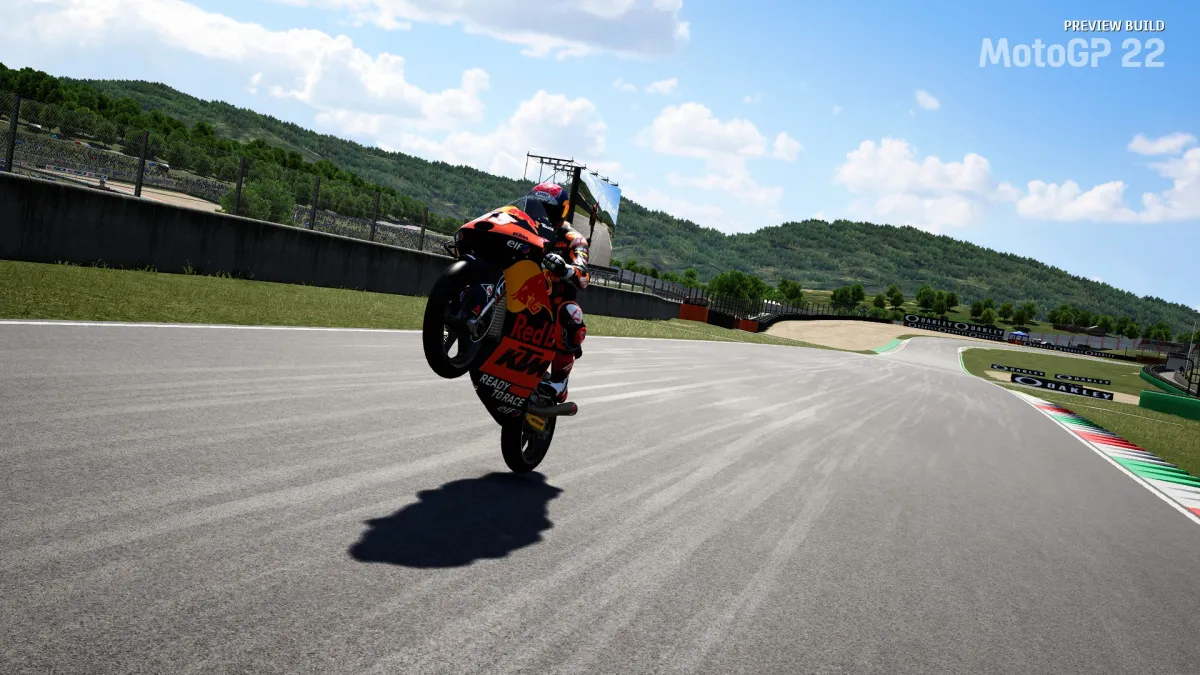
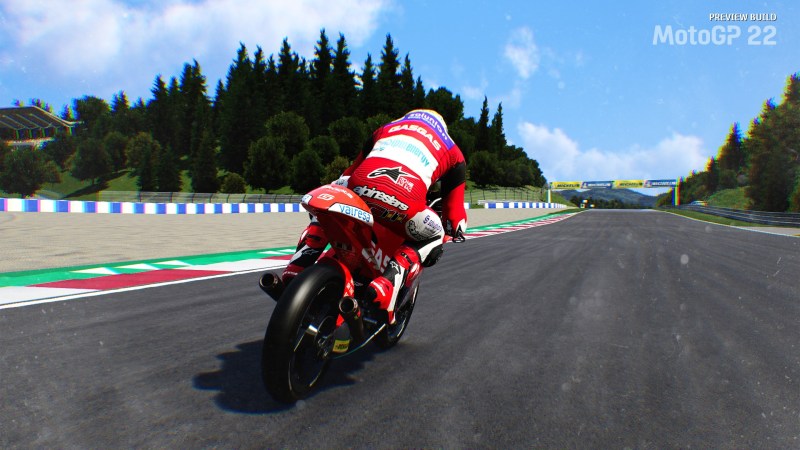
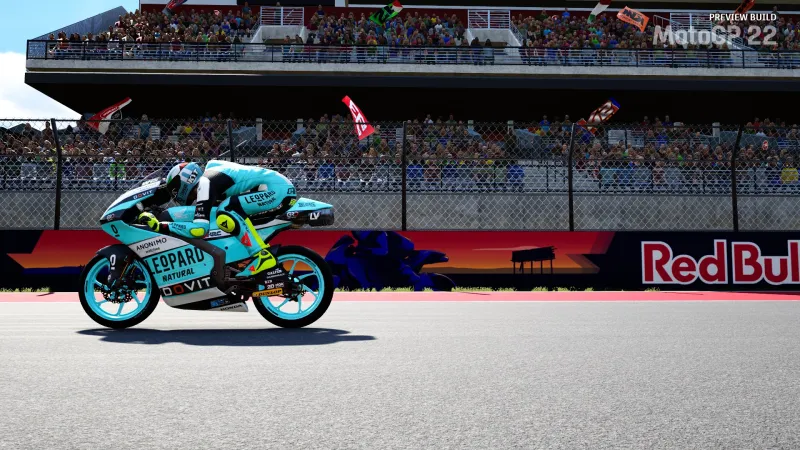
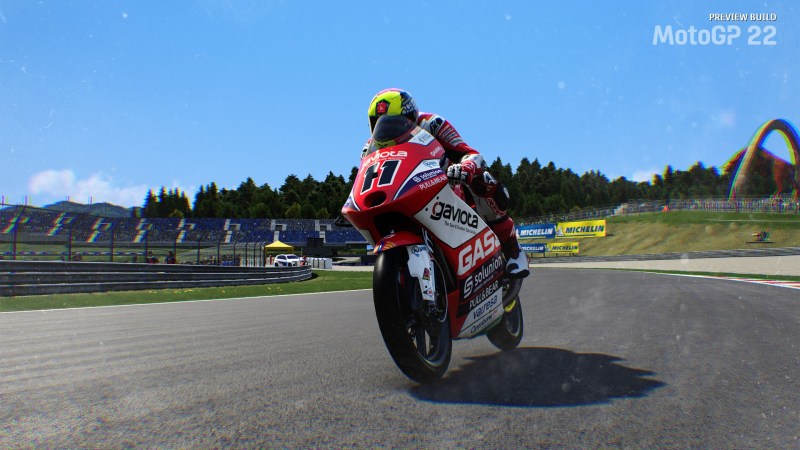

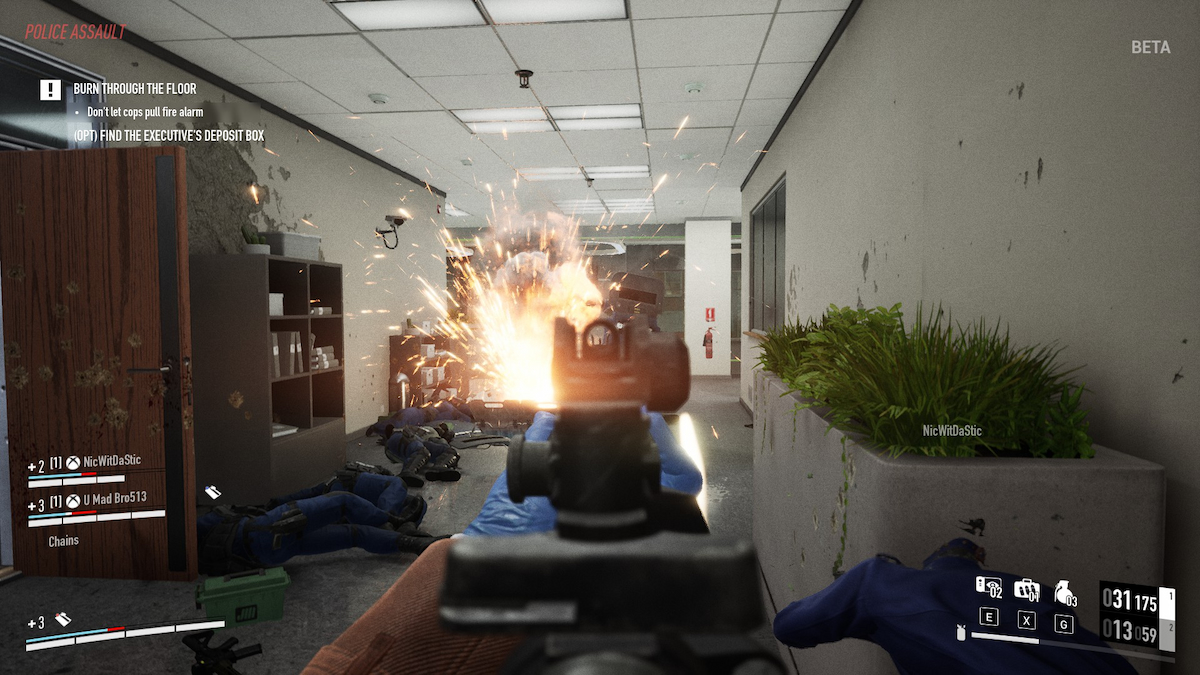
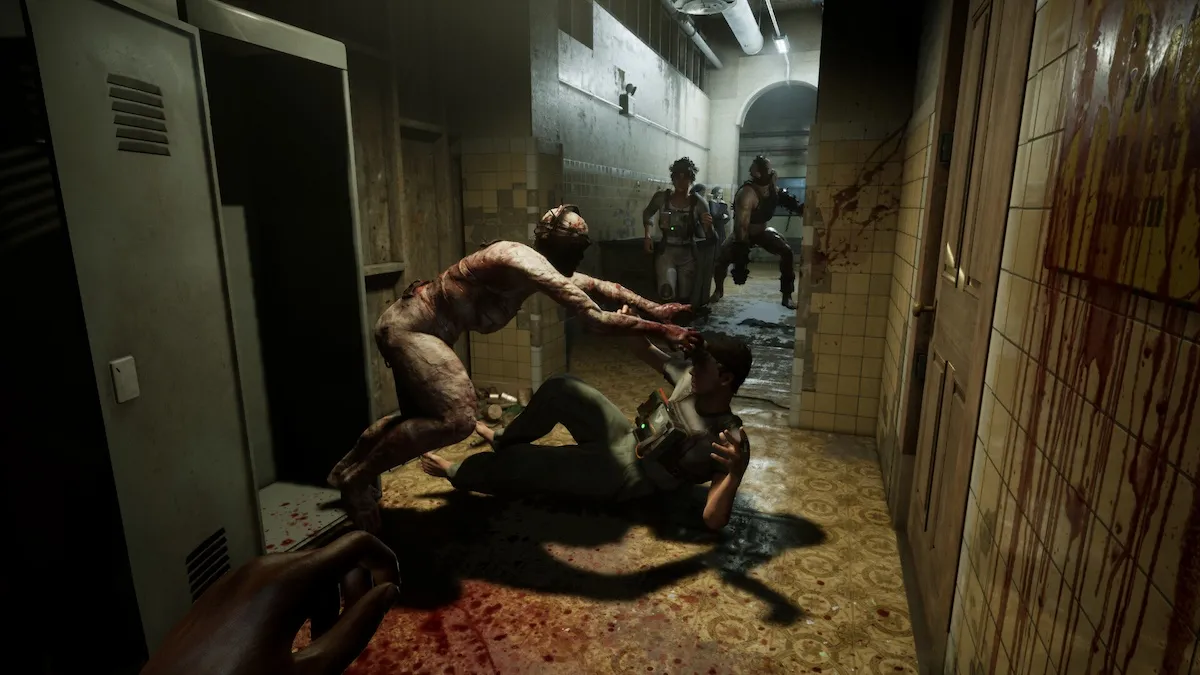
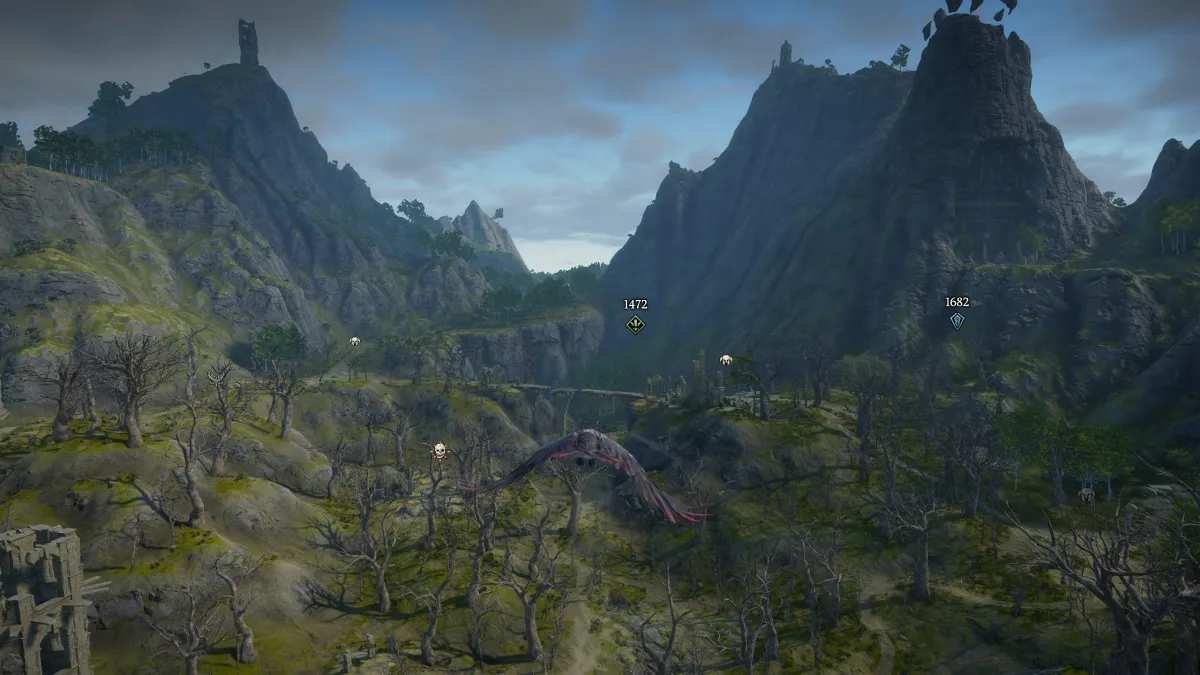
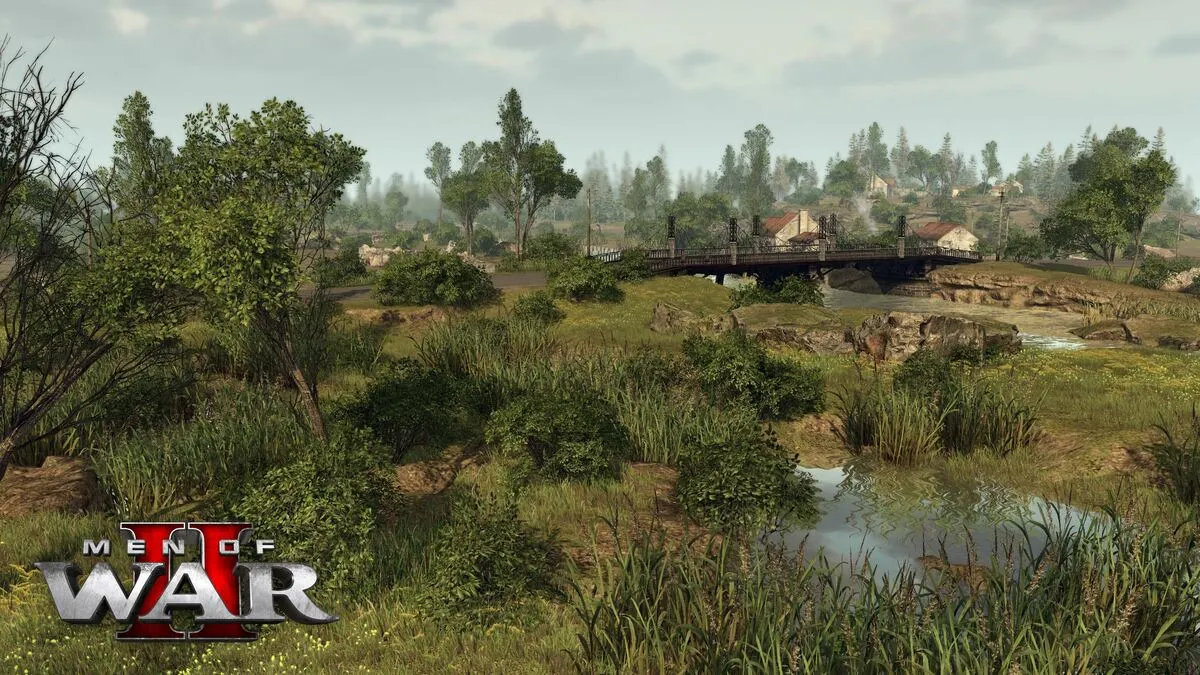
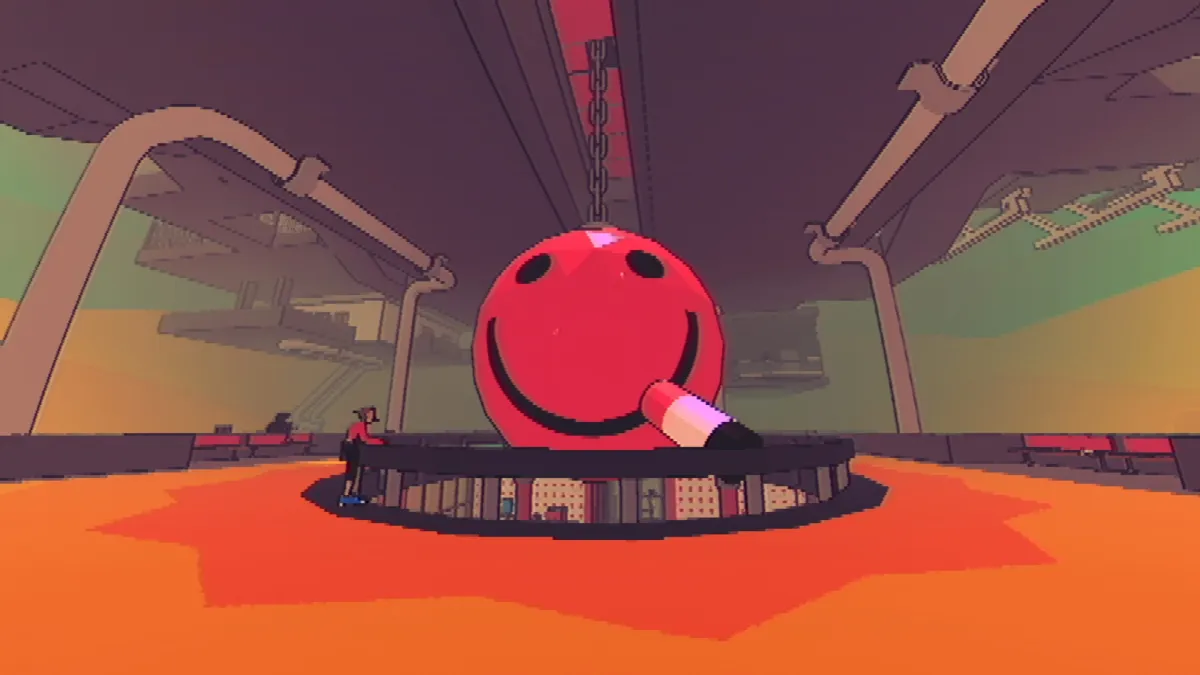
Published: Mar 15, 2022 03:00 pm